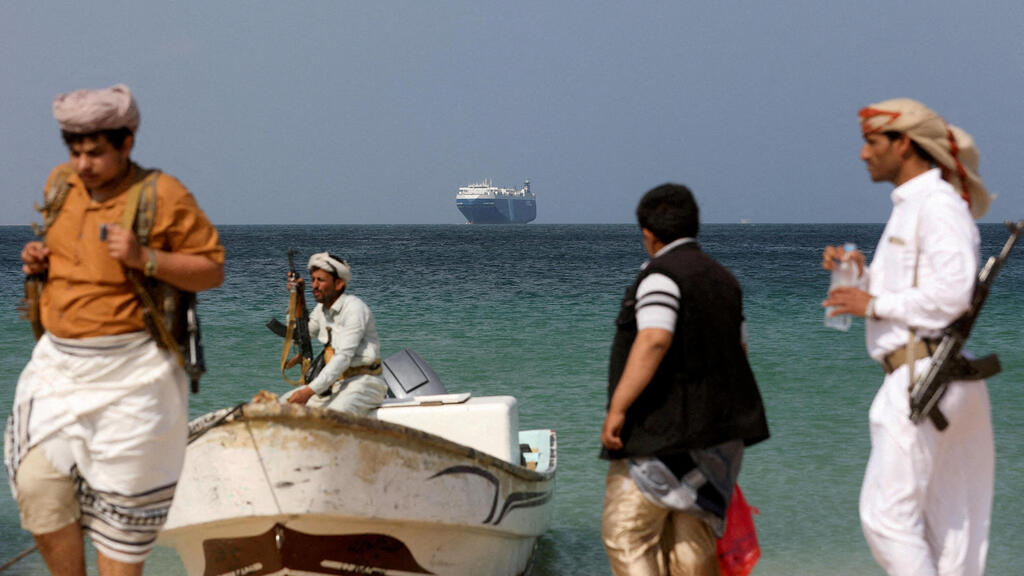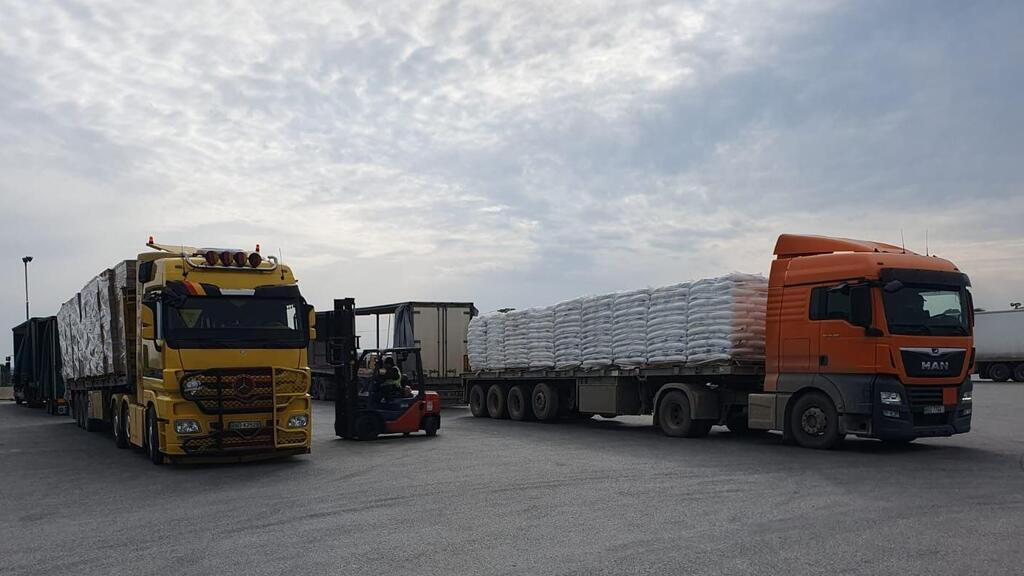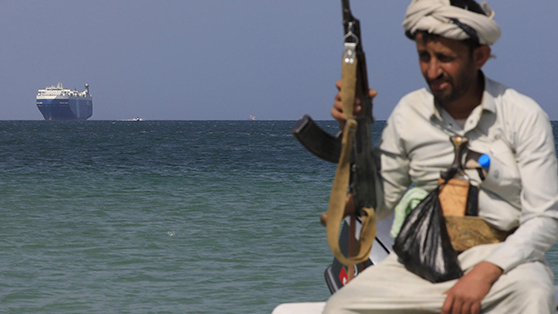Getting your Trinity Audio player ready...
To circumvent the dangerous waters in the Red Sea, where cargo vessels have come under repeated attacks from the Iran-backed Houthi rebels in Yemen, Israeli companies were being assisted by Gulf nations and even Israel's neighbor to the east, Jordan.
More stories:
The Houthis began what is essentially a blockade near the Bab el Mandeb straits to prevent the movement of ships they say are connected to Israel, in their efforts to assist the Hamas terror group in its war in Gaza.
Cargo vessels and oil and gas tankers have come under missile and drone attack forcing many companies to reroute their ships to longer and more expensive passages around Africa, refusing to endanger their cargo and using the ports in southern Europe, including in Greece and Italy while preferring to avoid Israel all together.
The economic damage however is felt not only by Israel and has impacted the supply chain in Europe as well. Electric car giant Tesla announced it would be closing its Berlin plant for two weeks due to a shortage of parts after delays in supplies caused by the Houthi threat.
One company that found a solution to the blockade is Mentfield logistics, which supplies much of the cargo destined for Israel. In coordination with the Israeli envoy to Bahrain, Eitan Naveh, ships traveling from China and India, unload their cargo in Bahrain and Dubai where it is loaded on Saud and Jordanian trucks and makes its way over land, to Israel, where Israeli trucks then receive the goods at the King Hussein border crossing with Jordan.
Company CEO Omer Yitzhari said the company has had to be creative in its solutions, even during the coronavirus pandemic when it chartered planes to bring essential goods such as medical protective gear or eggs, into the country.
"Today we are dealing with the Houthi threat to maritime routes. We understood that the shortest and least expensive solution to transport goods from the east is via Saudi Arabia and from there, overland to Jordan and then into Israel," he said.
Industry officials said the advantages of the land rout is its speed. The cost of transporting a container from the east to Israel before the war was around $2,000. Today because of the need to take a longer route, the cost it had spiked to $8,000. Before the war it would take the container 30 days to arrive but now it could reach up to 60 days. Over land, containers arrive within 20 days.
"If you are an Israeli importer and you want to transfer materials ahead of the Passover holiday, you are in trouble if you use a sea route. You have no choice but to use the ports in Bahrain and Dubai and transport your goods over land," one importer said. "There is also an interesting political aspect to this and a kind gesture from Saudi Arabia and Jordan. There are now more trucks making the trip over land and the number is growing at a maddening speed," he said.
3 View gallery


Houthi fighters look on at a cargo vessel they had commandeered off the Yemeni coast
(Photo: Khaled Abdullah / Reuters)
Some good were transported over land even before the Houthi blockade began, bringing commodities such as steel, but never at such a scope.
Another company that is using the land bridge to transport materials to Israel is Trucknet, which has recently signed an agreement with an Egyptian company to allow the use of the Israeli border crossing to deliver to the Egyptian markets.
"This is an economic and historic breakthrough that exemplifies the economic and trade cooperation between Israel and the Arab nations, in the fight against the axis of evil," company CEO Hanan Freidman said. "The purpose of this route is not to replace the use of the Suez Canal, but only as an express addition to it, that can now circumvent the Houthi threat and would later be used to cut 10 days off transport schedules."




